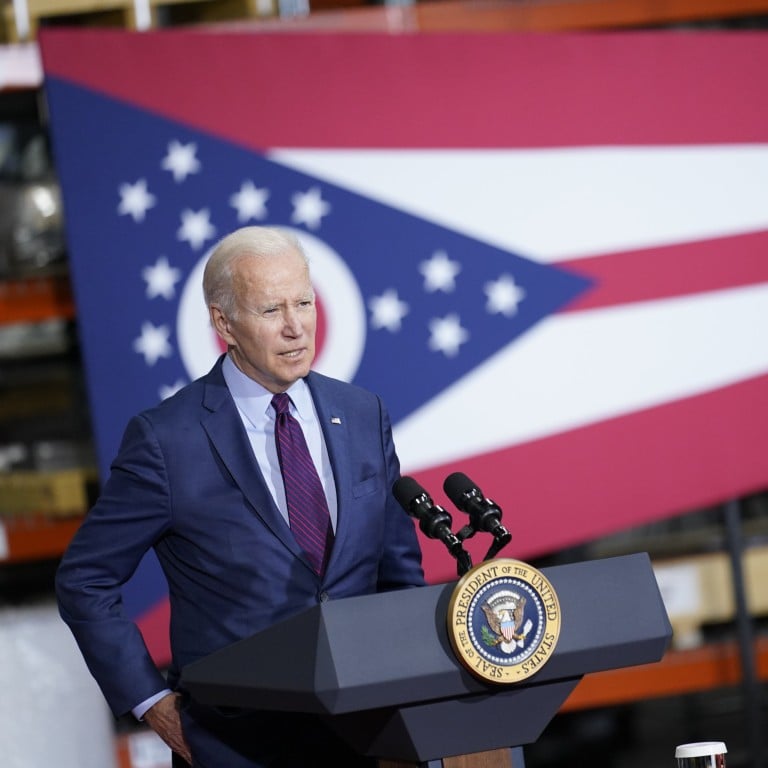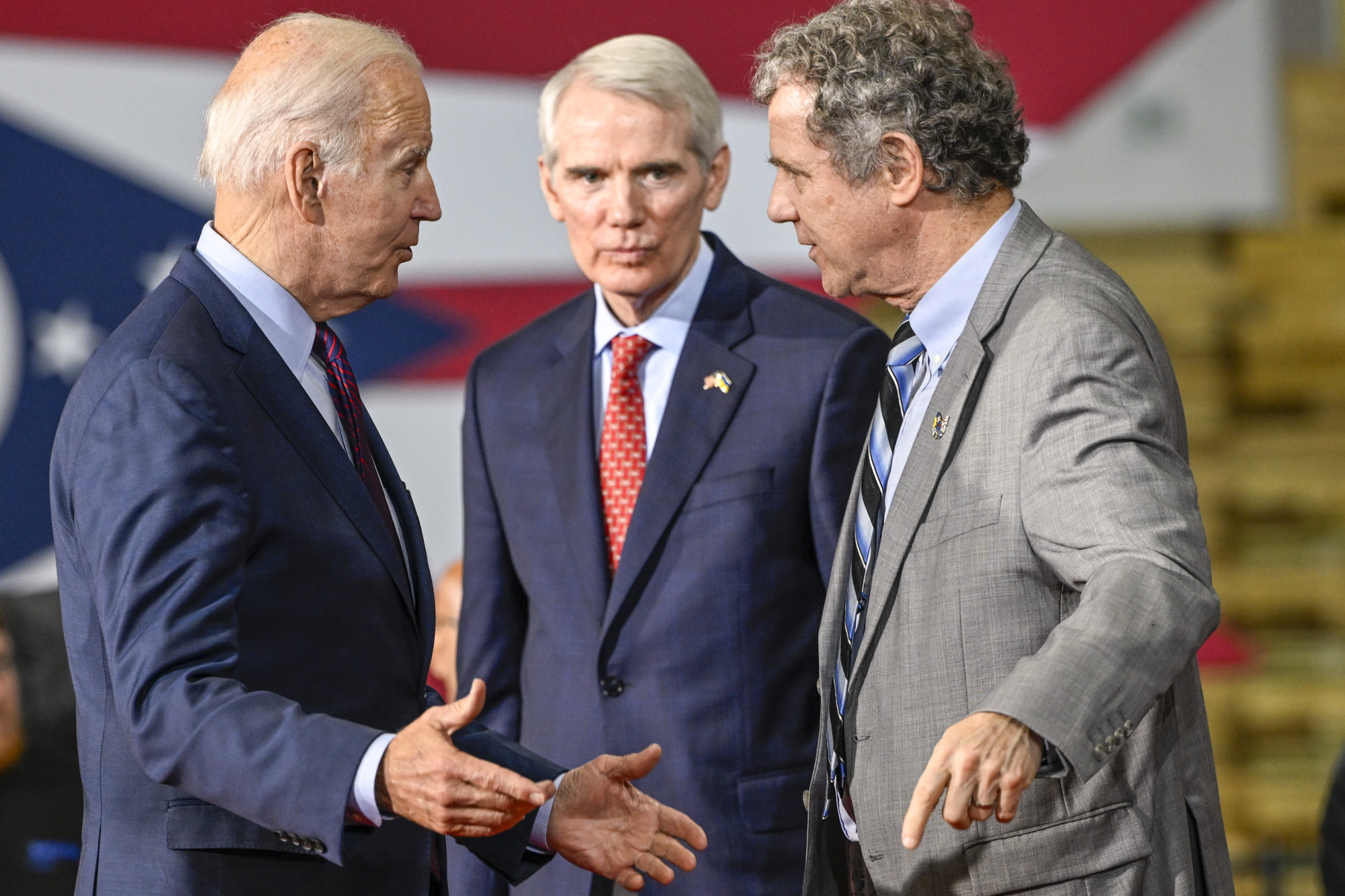
To counter China, Biden launches 3D printing initiative with GE Aviation and other large firms
- Honeywell, Raytheon and Lockheed Martin among other firms committing to help SME suppliers boost output of 3D printed components
- Biden renews call for passage of massive bills aimed at boosting development and production of semiconductor chips and other high-tech products
US President Joe Biden‘s administration announced on Friday a new initiative that would boost manufacturing of 3D printed products by domestic small- and medium-enterprises (SMEs), an effort that the White House hopes will work in conjunction with legislation meant to boost US competitiveness against China.
Dubbed “Additive Manufacturing Forward” or “AM Forward”, the initiative involves voluntary commitments from some of America’s largest manufacturers, including aerospace giant GE Aviation and leading defence contractor Raytheon, to source more 3D printed parts from smaller companies.
The larger companies would pledge to help train workers at these SMEs to make the products and help develop common development and certification standards for “additive manufacturing”, otherwise known as 3D printing.

Extending 3D printing capabilities to more companies in the high-tech supply chain, the administration reasons, would lower costs and increase the competitiveness of US SMEs and reduce dependence the large manufacturers and defence contractors have on overseas companies.
At an event attended by executives from some of America’s largest manufacturers, Biden touted the potential 3D printing has to offer economically and from a national security perspective.
“The executives here today have agreed to launch a new compact between large, iconic manufacturers and smaller American suppliers, a commitment by these large companies to help those smaller ones adapt new technologies so we can continue to be the leading exporter of aircrafts and engines in areas like medical devices, clean energy technologies and so much more,” he said.
While Biden’s policies have diverged from the priorities of his immediate predecessor, former president Donald Trump, particularly on social issues and the environment, he has so far kept hard-line policies on China intact, including efforts to reduce American reliance on manufacturing in the country.
US bill would block defence contractors from using Chinese rare earths
The US leader also reiterated a call for Congress to speed up passage of legislation that would provide billions of US dollars in funding for domestic semiconductor manufacturing and other provisions meant to counter China.
“We were ranked number one in the world in [research and development] three decades ago,” Biden said. “Now we’re ranked number nine in the world. China was number eight in the world 30 years ago. Now they’re number two in the world. We’ve got to up our game.”
What the White House refers to as the Bipartisan Innovation Act is what will emerge from Congress, assuming that the House of Representatives and the Senate manage to agree on provisions in China-related bills that each chamber has already passed.
Provisions for 3D printing in USICA are part of some US$23 billion worth of funding that the bill would allocate for the development of high-tech priorities including aeronautics and space technology.
“Advanced materials and manufacturing processes, including additive manufacturing, to reduce the cost of manufacturing scale-up and certification for use in general aviation, commercial aviation, and military aeronautics” are called for under the heading of “experimental aircraft projects”.
In-situ additive manufacturing shows up in the legislation under the “Mars-forward technologies” heading along with other technologies including nuclear propulsion and cryogenic fluid management.
As part of AM Forward, GE Aviation will target SME suppliers to compete on 50 per cent of its requests for products made using 3D printing or related technologies, and will target 30 per cent of its total external sourcing of additively manufactured parts from domestic SMEs, according to the White House fact sheet.
Beijing to impose sanctions on US defence firms over arms sales to Taiwan
Lockheed Martin, another participant in the initiative, will work with its SME suppliers to conduct research to improve the performance of additive manufacturing AM techniques specifically focused on the use of 3D printing as an alternative to the manufacture of products through the more traditional use of castings and forgings, it said.
Honeywell and Siemens Energy are also among the inaugural participants in AM Forward.
In a report on 3D printing prepared for US lawmakers in 2019, the Congressional Research Service — Congress’s public policy research arm — noted that 3D printing can be faster, cheaper, and more flexible than conventional production methods given 3D printers’ lower prices, easily modifiable digital designs, and ability to integrate multiple distinct manufacturing processes into a single operation.
The White House pledged support for AM Forward SMEs involved in the initiative through federal programmes.
For example, the Small Business Administration would extend loans and Small Business Investment Company (SBIC) programme “can support the widespread deployment of new additive capabilities across US industry”, it said.
Additional reporting by Robert Delaney


